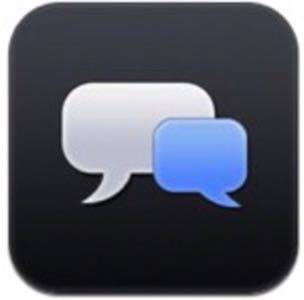Private group messaging apps are hot. The Monday after Skype acquired year-old startup GroupMe for a reported $85 million, a team of innovators who lead the ultimately unsuccessful but very important charge to popularize RSS feeds has regrouped to build and launch a new group messaging app called Glassboard.

Glassboard launched in the iTunes, Android and Windows Phone app stores this morning and it’s a good, solid, simple app for communicating across multiple different topical “boards” on your phone. If you’ve got a group of people you want to communicate with for a short or long period of time, from your phone, with commenting, media and location sharing, then Glassboard could be the app for you.
Big Aspirations
The team behind Glassboard includes RSS veterans NetNewsWire creator Brent Simmons, FeedDemon creator Nick Bradbury and Newsgator’s VP of Mobile and Data Walker Fenton. When social media was first bursting onto the scene with the self-publishing power of the first blogging platforms, it was RSS innovators like Simmons, Bradbury and Fenton, along with Google Reader leaders Jason Shellen and Chris Wetherell (now both at AOL) that really made blogging scale by building the web apps that let millions of people subscribe easily to tens or hundreds of millions of blogs.

Sadly, listening meaningfully to other people will never be as popular as babbling about yourself or drooling, so RSS reading applications didn’t explode like subsequent technologies have. They have changed the lives of millions of people, though, and continue to power important work behind the scenes throughout a still-democratizing media world.
These days it’s Group Messaging that’s hot though, and it’s surely more accessible than RSS. As I wrote when previewing the Glassboard app earlier this Summer:
“It is built with Microsoft Azure as its back-end and will integrate with Microsoft’s forthcoming Office 365. The team is being intentionally ‘agnostic’ about its target market, saying it could be used by families, work teams or companies and their clients. These guys have built some incredible things in the past and it will be very interesting to see what they can bring to one of the biggest potential markets of the day.”
The app is now live and in limited testing, I’ve been impressed with it so far. It reminds me a lot of Beluga, the group messaging client scooped up by Facebook this Spring, except it’s better set up for small groups of people you already know than it is big public group chatter like Beluga is sometimes used for. One of the differentiators is that Glassboard uses the News Feed model to display activity updates from all your different group conversations.
Clearly Skype and Microsoft think that mobile group messaging is going to be an important part of the tech landscape of the future. Glassboard is a solid entrant into that market, led by a very high-caliber team.
Why Group Messaging Matters
As David Card, Research Director at GigaOM Pro, wrote this Spring:
“Synchronous communications (such as mobile group chat) are the latest battleground in the war over unified communications, but no matter how clever and fun those apps are, they’re not the real contenders. Rather, technology platform players like Google, Microsoft and Facebook are fighting to see what company supplies a user’s communications control panel – and a scrappy Skype can’t be ignored either.”
Why are these apps so hot right now? I think it’s in part because they capture the same feeling that one to one SMS and MMS capture, but on a whole new level with multiple people. It’s a paradigm that’s both simple and highly engaging.
Om Malik wrote in February that good group messaging apps could hold the key to Google effectively challenging Facebook in social technology. Their synchronous Interactions are “highly personal, are location-aware and allow the sharing of experiences, whether it’s photographs, video streams or simply smiley faces. Interactions are supposed to mimic the feeling of actually being there. Interactions are about enmeshing the virtual with the physical.”
That described Glassboard well, too; and so far the app looks like a clean, simple, fast way to accomplish those goals that are common among group messaging apps.

















